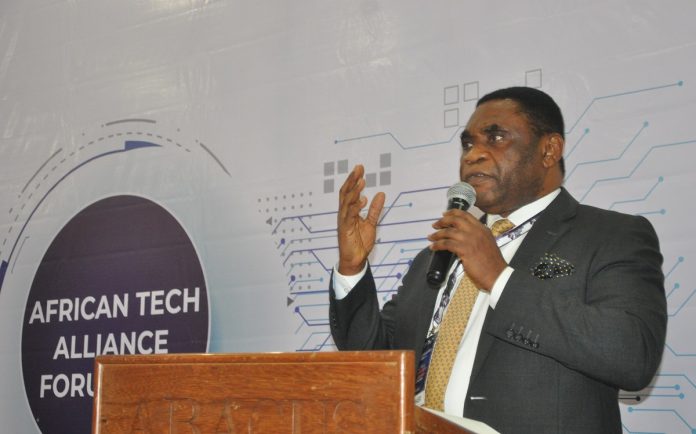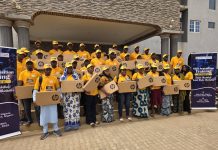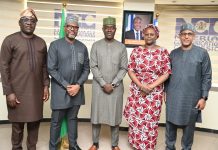Ojobo made the call on Wednesday, October 13, at the African Tech Alliance Forum (AfriTECH2021) organised by TechEconomy.ng.
The hydride event with strict compliance to COVID-19 protocols under the theme: ‘Embracing Change and Digital Transformation in the New Normal’ held in Lagos, Nigeria.
The AFICTF President explained that lack of access to technology in rural communities fuels division between urban and the rural population, adding that: “Inability to afford devices, e.g. Computers, Smart Phones, internet Covid-19 put 826 Million children out of school in Sub-Saharan Africa in 2020.
“Lack of access to distant learning facilities in rural communities and some demographics in the cities 1.5 Billion students globally were unable to have access to online education during the pandemic in 2020 63 Million primary and secondary school teachers were unable to teach during the same period.
“The world is embracing more of “Man- to – Machine” and “machine – to –machine” communications. This has implications for HR professionals, jobs, mental health and interpersonal relations.
“The world has changed. COVID 19 caught the world unprepared. Things will never be the same again. The world as we know it has changed to new normal behaviours, social distancing, vaccination, PCR, C face mask use, booster shots, handwashing, hand sanitization etc.
“The following have been affected; education, news gathering and reporting, work culture, organizational behaviour, management functions, marketing, PR, commerce, agriculture, tourism & travels, aviation, sports and business models and strategies.
“Two things that changed the world significantly; Covid-19 & 9/11 digital transformation entails the following: organizational/culture change ( remember Nigerian Ease of business? still business as Usual ) operational changes through the use of technology reduced person – to – person interface (curbs corruption)
“Encourages machine – to – machine and person – to – machine communications establishes reporting formats and timelines Bottom –to – top and Top- to- bottom adoption of technology in organizational processes.
Ojobo therefore called for bridging the digital gap between the urban and rural population/schools through the provision of low cost devices in schools for digital learning.
He also believes that incentivising mobile network operators to provide services in underserved and unserved areas cannot be neglected as adequate budgetary provision for pervasive Broadband infrastructure has become a sine qua non in the continent’s digital transformation journey.








